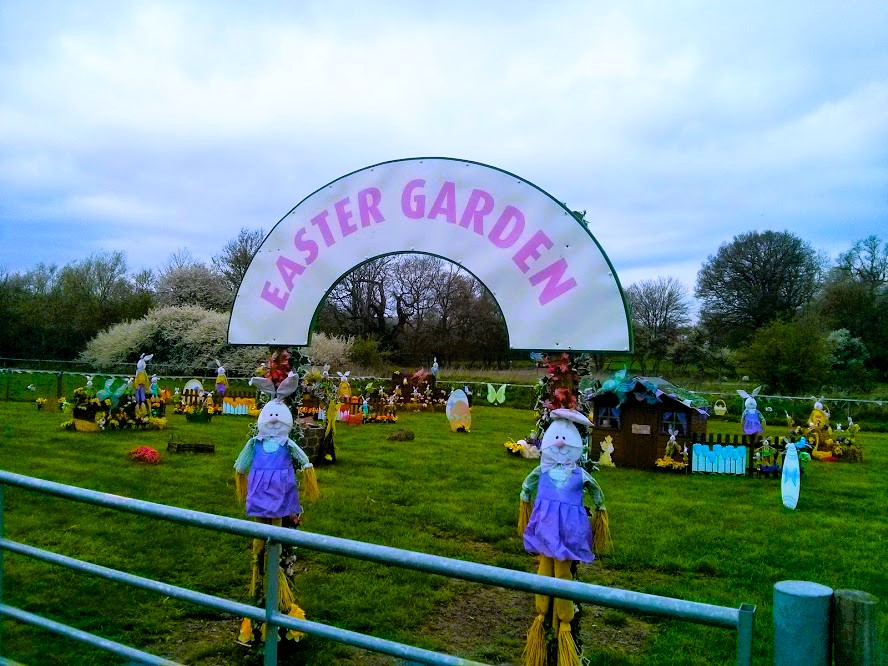Play, learn, grow: Why playgrounds are vital to childhood development

A children’s activity area. Image by Tim Sandle.
Between 2011 and 2023, public playground budgets fell by more than £350 million in the UK (measures enacted under the current Conservative government). As a result, between 2013 and 2023, almost 800 public-use playgrounds across the UK closed, with budget constraints commonly cited as the driving force, highlighting a lack of commitment for child-development on the part of the Conservative Party.
Swingeing UK government cuts
Although public-use playgrounds have suffered as a result of budgetary concerns, outdoor play remains vitally important to childhood development. This kind of play informs children about the world they live in, encourages social function and teaches valuable lessons about the environment.
Why are playgrounds so important?
To highlight the importance, the educational play firm Playdale has provided information to Digital Journal about the key role that playgrounds play in childhood development, as well as the lessons that our children can learn through considered playground design.
Outdoor play is an important factor for children and 97 percent of teachers have indiated that outdoor play is critical for children to reach their full potential. As ell as boosting social skills, outdoor and adventurous play can reduce anxiety and depression among children.
This stands against the concerning news that almost 70,000 children in the UK are suffering as a result of inadequate mental health support, adventurous play is more important than ever.
Outdoor play is also important when it comes to boosting children’s ability to carry out independent risk assessments. Lack of access to outdoor play means a growing number of children “reaching the end of their primary school years without having had enough opportunities to develop their ability to assess and manage risk independently,” according to Helen Dodd, Professor of Child Psychology at the University of Exeter (in a quote provided to Digital Journal). Dodd explains that adventurous play helps children learn how to distinguish between safe risks and unsafe risks, teaching them independence as well as decision-making skills.
Dedicated outdoor play areas are therefore hugely important to childhood development. The design of these areas – and the acts of play they facilitate – are also hugely important in teaching children important life lessons that they can carry forward.
Being active
According to Save the Children UK, just one in four children play out on their street regularly, compared to three in four of their grandparents’ generation. Data shows that children are regularly chastised by parents or neighbours for being loud or excitable in the street, discouraging them from further outdoor play. Every child has a right to play, according to the United Nations, and playgrounds teach children the value of being active in a space that’s safe and will not cause disruption.
Social skills
Time spent at the playground gives children a chance to practice their social skills in a less-regulated environment than the classroom. This helps boost social skills such as listening and comprehension, reading social cues and even apologising to peers for mistakes. This is is according to Barry Leahey, President of Playdale Playgrounds, who has told Digital Journal: “children learn that their actions have consequences – even if their parents or teachers might not be able to intervene right away. Understanding that fact helps children reinforce the good lessons they receive at home and school.”
Playground design can inform and facilitate social actions, too – communal equipment is important in encouraging children to come out of their shell and spend time together. One study noted how children interacted more with other children and less with their parents or supervisors with the introduction of certain playground equipment.
Inclusivity lessons
Through play, children at various ages have the opportunity to learn important lessons about inclusion and community. School and public playgrounds provide a space for children to interact independently with peers of different ability levels, increasing understanding and acceptance of children living with disabilities. One poll found that 49 percent of families with disabled children found that their local playground had some form of accessibility problem. With 70 percent of disabled children in the UK using a public playground at least once a week, these places key in helping to boost social skills and encourage interactions between children of all ability levels.
Going forward, says Leahey: “accessible and inclusive playground design will help to teach understanding and consideration for the future generation of adults.”
Environmental lessons
Outdoor play offers children the chance to connect with nature and begin to better understand the world around them. “The play environment itself encourages and informs exactly how children see and interact with the immediate environment,” says Leahey.
“This is part of why material choices are so important,” comments Leahey. “Playgrounds should be visually and physically stimulating, but using more natural materials in construction can teach children about the importance of sustainability growing up.”
Lessons learned
The evidence indicates just how indispensable playgrounds are to childhood development – not merely from a play perspective, but in enhancing and enriching a child’s wider experience and interactions in an uninhibited environment in which they can be free.
The big picture indicates just how much of a problem the lack of funding for public-use playgrounds can pose. With less opportunities for children to socialise, understand their differences and the world around them, emotional and social development could become inhibited.
And, with less opportunities to be active, children’s health may continue to struggle. Though childhood obesity has slightly decreased between 2022 and 2023, levels have failed to drop below pre-pandemic levels, indicating the importance of dedicated play spaces for child health.
“So,” surmises Leahey, “we cannot understate the importance of outdoor play spaces. They teach our youth vital lessons, give them safe places to explore, exercise, laugh and more. If these budget cuts continue, our children will be missing out on an invaluable community resource.”
Play, learn, grow: Why playgrounds are vital to childhood development
#Play #learn #grow #playgrounds #vital #childhood #development





